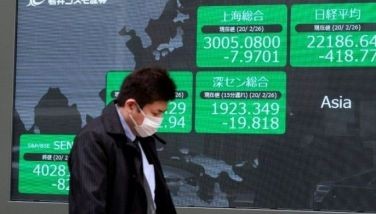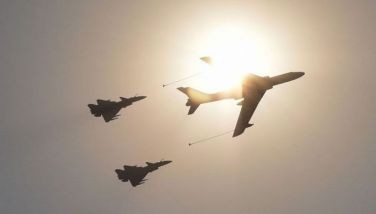Tensions test US-Thai relations as strategic talks resume
WASHINGTON — The top US envoy for east Asia returns to military-governed Thailand this week, hoping for better news coverage than on his last visit a year ago. Local media branded veteran diplomat Daniel Russel an "ugly American" and the government protested that he had "wounded the hearts of Thais" for public criticism of the country's curbs on democracy.
Russel is traveling to Bangkok for the first formal US-Thai strategic dialogue since the May 2014 coup. That is part of a broader Obama administration effort to build stronger US ties in Southeast Asia and counter China's rise. But the underlying problems remain. The Thai military keeps delaying a return to civilian rule, and Washington keeps falling afoul of Thailand's hyper-sensitive politics.
Police recently took up a complaint brought by hardline royalists who accused US ambassador to Thailand, Glyn Davies, of defaming the monarchy after he voiced concern about long prison sentences under a law that criminalizes criticism of the royal family. That reflects broader US concerns about the junta's clampdown on dissent.
Police appear unlikely to pursue an investigation against Davies, who has diplomatic immunity. But the adverse response he provoked, despite prefacing his remarks with praise of Thailand's revered King Bhumibol Adulyadej, underscored the disconnect that increasingly weighs on America's oldest diplomatic relationship in Asia.
"The military is convinced that it saved Thailand from spiraling into chaos and acts hurt and puzzled that Washington doesn't understand this," said Murray Hiebert, an expert on Southeast Asia at the Center for Strategic and International Studies. "The current flap is another sign of how much bilateral relations have deteriorated since the coup."
Desmond Walton, a former US defense attache in Bangkok who criticized Washington's post-coup scaling back of ties, said the strategic dialogue — last held in 2012 — showed the US is shifting toward a more pragmatic approach. He predicted Wednesday's talks between the two foreign ministries would be followed by a high-level military dialogue early next year.
The US-Thai diplomatic relationship dates back 182 years. Today, Thailand is less critical to American interests than it was during the Vietnam War, for instance, when it hosted 50,000 US forces. But it remains a regional hub for the US on issues like intelligence, law enforcement and counternarcotics. Although the US has restricted military assistance since the coup, Thailand continues to host America's largest multilateral military exercises in the Asia-Pacific.
Thai ambassador to the US, Pisan Manawapat, said that the US and Thailand have shared interests in the region, and hoped the strategic dialogue would elevate bilateral relations. "The US knows well how to deal with its friends and allies in order to bring about shared outcomes," he said.
Russel said the two governments should "maximize our cooperation within the bounds of what's possible under current circumstances." But he said the US wouldn't "walk away" from its commitment to universal values like free speech.
"What ultimately is going to matter is that this story ends well," said Russel. "My primary concern is that the Thai nation emerges from this period of military rule with a stable, democratic, civilian-led, inclusive government."
Thailand has been consumed by political turmoil for the past decade, since the military ousted populist but divisive leader Thaksin Shinawatra in 2006, sparking intermittent bouts of unrest and bloodshed between Thaksin supporters and pro-establishment opponents. On his January visit, Russel stirred a furor because he met with the prime minister ousted in the latest coup, Thaksin's sister Yingluck, and said in a speech that her parliamentary impeachment was politically motivated.
Russel is not expected to meet Yingluck this week, but will confer with political leaders, including from the opposition.
- Latest
- Trending





























